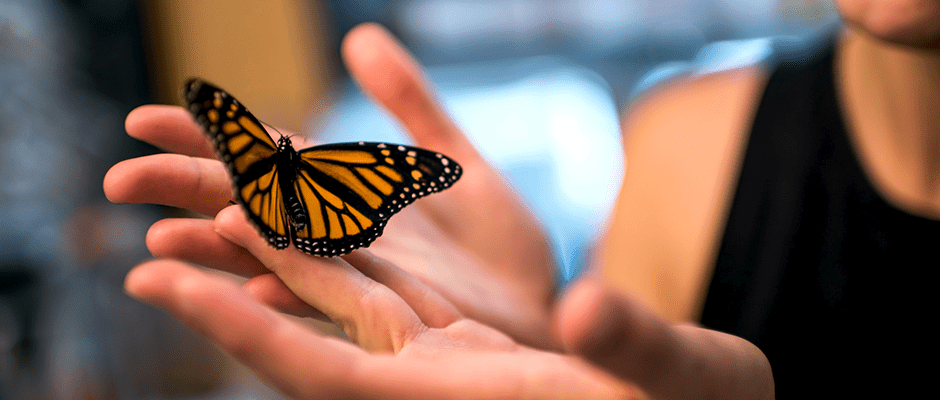Share this article
Increased carbon dioxide detrimental to monarch health
In addition to the gamut of threats facing monarch butterflies (Danaus plexippus) — including climate change, pesticides and habitat loss — researchers recently found increased carbon dioxide may add to their struggles by reducing medicinal compounds in milkweed.
“It’s just another bit of bad news for the monarchs,” said Leslie Decker, a postdoctoral research at Stanford University and lead author of the recent study published in Ecology Letters. “I think it’s another aspect of how we’re changing the world in a way that’s not beneficial to monarchs and is detrimental to their health.”
In the study, Decker and her colleagues looked at how elevated carbon dioxide levels affect four different milkweed species that contain bitter toxins that help monarchs ward off parasites. The most protective of the species is tropical milkweed (Asclepias curassavica), Decker said.
At the University of Michigan Biological Station, the team used 40 carbon dioxide chambers to complete the experiment. For half of the chambers, team members pumped in extra carbon dioxide to reflect levels projected to occur in about 100 to 150 years. In the others, they let the milkweed grow at normal carbon dioxide levels.
“In all four of the species, there were declines in concentrations of the medicinal compounds,” Decker said. But most shocking, the monarchs fed the most protective tropical milkweed were the only group that showed a decline in parasite tolerance in response to elevated carbon dioxide. The medicinal quality of tropical milkweed declined 25 percent, and the parasite tolerance of caterpillars that fed on the tropical milkweed declined 77 percent under elevated carbon dioxide conditions.
Not only were the concentrations of the medicinal compounds dropping, Decker said, but the types of compounds were changing as well, becoming less protective for the monarchs.
While this is another piece of bad news for the butterflies, Decker said, being aware of the threats and addressing them can help the monarchs succeed.
The effects of carbon dioxide on medicinal qualities of plants can have implications on other species, too, Decker said, including bees, birds and primates that use the plants —including humans, possibly.
“We look at this study and think about ourselves,” Decker said. “We don’t even know about all of the medicinal properties in the environment, and we could already be losing helpful compounds.”
Header Image: Decker holds a monarch butterfly in the University of Michigan laboratory. She and her colleagues found increases in carbon dioxide can decrease medicinal properties of milkweed for the butterflies. ©Austin Thomason/Michigan Photography








